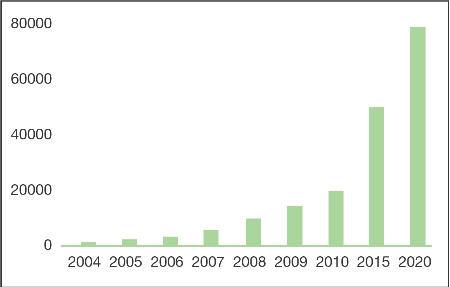Trying to predict the future is pointless. People who should have the best results do slightly worse than guesswork. The rets of us do much worse than guesswork.
The problem is that a single, seemingly insignificant niche invention can have massive effects 50 years down the track. “The internet” was insignificant 30 years ago and unheard of 50 years ago. Now it is literally changing the world. The same can be said for the internal combustion engine or hormonal birth control or any other major invention that genuinely changed the world.
The example I usually bring up in these threads is 3D printing technology. 10 years ago nobody but researchers new about it. 5 years ago a few of the bigger engineering firms had the technology. No wit’s within reach of private individuals who want one. As the technology advances over the next 50 years it could have the most profound influence on society, bringing us close to a true post-scarcity state. Or maybe it won’t. Maybe, like spaceflight or atomic power or virtual reality, it will be a dead end, becoming safer and cheaper and more widespread but never diversifying much beyond it’s starting point and never used by 99% of the populace.
Which is the real point. We can’t predict the future because any seemingly small change totally changes all the rules. A free energy source may have been discovered 10 years ago, and is just awaiting perfection. They might discover a mechanism to extend the human lifespan to 200 healthy years tomorrow. they might produce a robot that can truly replace humans in every endeavour. None of those things are in any way impossible, and any one of them would likely result in changes far more profound than anything we have seen before.
I’m also not sure that I buy the concept that we aren’t making big changes any longer. The electronics revolution, for example, happened in my lifetime (barely) produced changes every bit as profound as the industrial revolution, insofar as it largely killed unskilled jobs. Suddenly you needed at least a HS education to be able to function even as a factory labourer. Globalisation is having similarly huge effects insofar as the developed world is losing anything like unskilled jobs, not to mention the effects on on attitudes towards foreign affairs. We don’t notice these changes as being historically significant, though most of us know the impact they have on us personally or in our immediate communities. But the same was true of people living through all the big changes of the past. Very few people knew that the industrial revolution was big until it was pretty much over.
The same goes for strictly technological changes. The internet is as big a change as the invention of the telegram or the printing press. It’s effect on human communications is huge, and it has only really been around for 15 years. Looking solely at P2P file sharing and Wikipedia we see two examples of where the internet has totally changed the way that most people do things. These are revolutionary changes, and they have along way to go yet before they peak. If we compare that to the effect that the printing press or telegraph had 15 years after public adoption the effect is more than comparable.
Which I think is the real problem. We can’t judge the significance of change while it is occurring, and so we can’t judge the effect of recent changes. In 1850 people would have sid that recent changes are fairly minor, while saying that things sure had changed since Grandad’s day, yet now we would say that there were greater changes taking place in 1850 than ever before or since.
To really try to judge the pace of current change we need to look whether people lives have changed. And you better believe they have. Go and look at the thread on Generation X over I MPSIMS to see what I mean. We have people of age 40 reminiscing over how completely different the lives of young people are today. 40 year olds, not greybeards but people who haven;t even entered middle age. That’s how fast things are changing. The rate of change hasn’t slowed down in recent years, the lifestyle gap between 40 yos and 20 yos is at least as large as it was 20 years ago, and IMO much higher.
So as far as i can tell the “paradigm shattering” changes are occurring as fast as they ever have.

